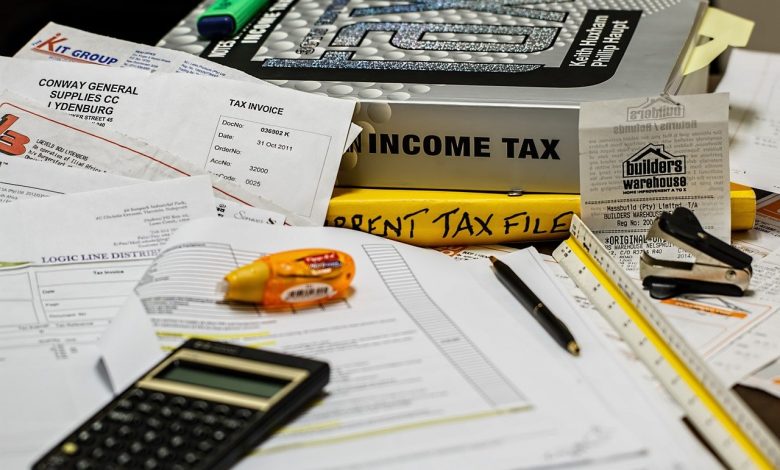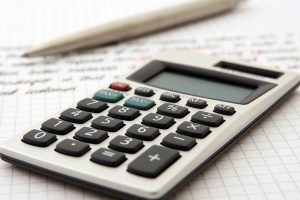Singapore Income Tax: A Guide to Filling and Paying (2021)

Singapore uses a progressive personal Singapore income tax rate that begins from 0%. The maximum percentages are 22% – for those earning more than $320,000.
It is a must to pay this tax for a resident in the country. But the good news is, there is no capital gain. And you will never have to worry about inherent tax too. For the year 2021, filing your tax returns should be done before April 15.
Well, if you are wondering if this hard, don’t be afraid. It is a simple process that should take you a very short time. In this simple guide, you will learn about everything concerning this process.
How to file Personal Income Tax 2021 Guide
 Like any other country in the world, paying tax in Singapore is mandatory. That is where the government finds money to run development projects and pay civil servants. It is not hard, and you don’t have to fear anything. The online process is offered through myTax Portal, which should make things easier. Paper filing is also available for those who not into such technology.
Like any other country in the world, paying tax in Singapore is mandatory. That is where the government finds money to run development projects and pay civil servants. It is not hard, and you don’t have to fear anything. The online process is offered through myTax Portal, which should make things easier. Paper filing is also available for those who not into such technology.
Various (legal) methods exist, through which one can pay their taxes in lesser amounts. Such means include charity contributions, NSman deductions, CPF Top-Ups, among others. Online tax advisors can help one determine how much tax they have to pay.
How do I know when I need to file income tax?
Perhaps you are wondering if you really need to pay tax. Well, some may not be eligible for such deductions.
Here is how you can tell:
1. You will receive a Notification from IRAS
This is very clear. IRAS sends a letter, a form, or SMS to individuals who must pay income tax. If you do, please file your return through myTax Portal before the end of March 2021.
Employers are supposed to file the Auto-Inclusion Scheme (AIS) for their employees. All the information will be available on request. But there are fields you must complete in-person on the form before submission. It is essential that you don’t ignore it.
2. What if the notification from IRAS says you don’t need to File your income tax?
You may also receive a letter or SMS from IRAS informing you that you don’t need to file your income tax for that year. The message mostly comes around mid-February.
In that case, you have been included in No-Filing Service (NFS), and you don’t need to do it. But you can still make adjustments, including income details and relief claims, through the online portal.
Be sure to look out for a Notice of Assessment (NOA) or tax bill, though. It should be sent towards the end of April, showing the total payable income tax. Use the “Object to Assessment” options to raise any discrepancies.
3. What if IRAS does not send any notification?
It is possible not to receive any message from IRAS. That does not mean you are forgotten or exempted from filing your return.
You will have to file the tax in case your yearly net business income was more than $6000 or if it was above $22,000 the previous year. Filing your tax returns is a sign of good citizenship. So, be a good citizen and open the myTax site for the same.
Guide to filing Singapore income tax 2021
Everything is pretty straightforward. There are three main items to look out for:
1. Income
There is taxable income and non-taxable income. Tax income includes employment income, salaries, bonuses, director’s fee, rental income, and SRS withdrawal. Non-taxable income includes winnings from 4D, TOTO, betting, capital gains from stocks and property investments, pensions, and CPF Life Payouts.
2. Deductions
Deductions are allowable expenses incurred or accepted donations for the year. Good examples include business expenses, rental expenses, and approved donations.
3. Tax relief
It is important to know about tax relief. This is given to those who support specific government initiatives in promoting special social and economic objectives.
Tax relief may be possible if you:
- Have children
- Stay with your parents
- Serve your country
- Top up your CPF account
The IRAS table for a complete list of qualifying reliefs, expenses donations should shed more light on this. Understand that tax relief comes with a limit in terms of what one can receive. Currently, the tax relief maximum is $88,000.
Singapore Personal Income Tax: 2021 Rates for Residents
After filing your income tax, you may want to see how much you are paying.
Remember that residents are taxed at progressive rates. Here, the more you earn, the more you will pay. Look at the table below:
| Taxable income | Income Tax Rate (%) | Gross Tax Payable (S$) | Total Income Tax in this income bracket (S$) |
| First $20,000 Next $10,000 |
0 2 |
0 200 |
200 |
| First $30,000 Next $10,000 |
– 3.50 |
200 350 |
550 |
| First $40,000 Next $40,000 |
– 7 |
550 2,800 |
3,350 |
| First $80,000 Next $40,000 |
– 11.50 |
3,350 4,600 |
7,950 |
| First $120,000 Next $40,000 |
– 15 |
7,950 6,000 |
13,950 |
| First $160,000 Next $40,000 |
– 18 |
13,950 7,200 |
21,150 |
| First $200,000 Next $40,000 |
– 19 |
21,150 7,600 |
28,750 |
| First $240,000 Next $40,000 |
– 19.50 |
28,750 7,800 |
36,550 |
| First $280,000 Next $40,000 |
– 20 |
36,550 8,000 |
44,550 |
| First $320,000 In excess of $320,000 |
– 22 |
44,550 |
Looking at these figures, you can agree that it’s logical. Besides, Singapore offers some of the lowest Tiered rates.
Non-resident residents
Non-residents pay a flat rate of 15% or resident rates. It all depends on which brings the highest on employment. Other incomes, including the director’s fee, are taxed at 20%. You are not entitled to relief.
Full information on how much is taxed can be found on the IRAS page for tax rates for non-residents. This covers everything you need to know.
Frequently asked Questions
 Am I subject to Singapore income tax?
Am I subject to Singapore income tax?
Income tax is mandatory for all Singapore residents. It comes in the form of:
- Employment
- Trade, business, profession, or vacation
- Property investment
- Other sources
Who is a tax resident?
You are a tax resident for that specific year if:
- You are a citizen with permanent residence in Singapore, except for temporary absences
- Have established a permanent home here
- A foreigner who has stayed or working for more than 183 days in the past year.
How do I know if my dividends are taxable?
Non-taxable dividends include:
- Those paid on or after January 1, 2008, by a resident company following the one-tier corporate system, save for co-operatives
- Foreign dividends or of before the start of January 2004, by a resident.
- Income distribution from REITs, except those from partnerships in Singapore.
Taxable dividends include:
- Co-operatives
- Foreign-sourced through Partnerships REITs through partnerships in Singapore.





